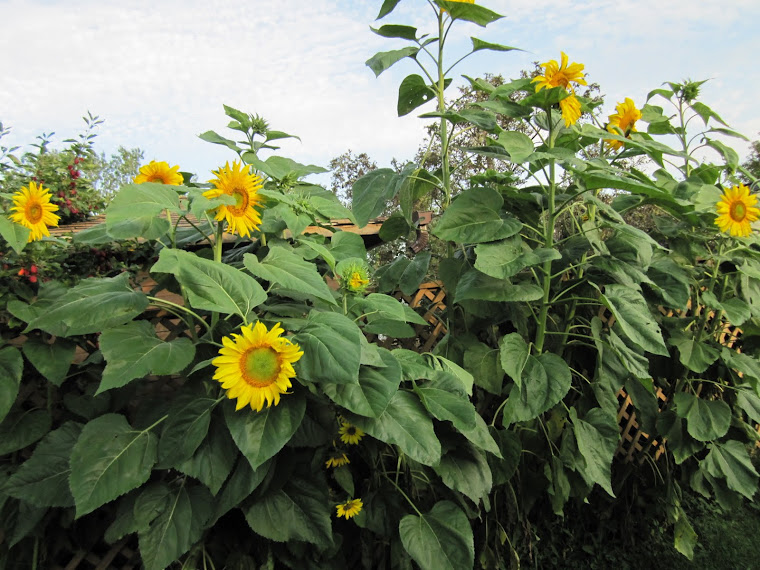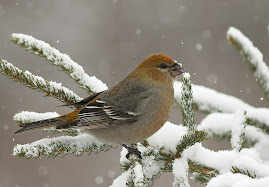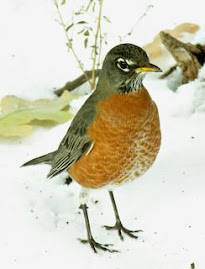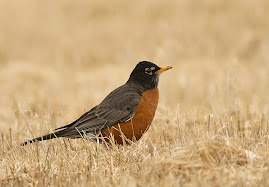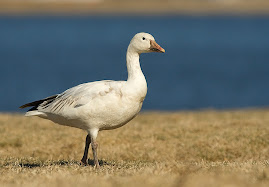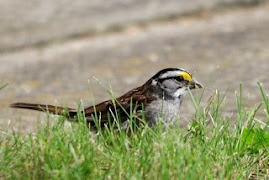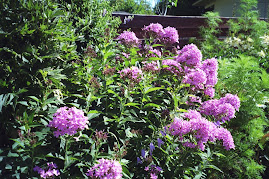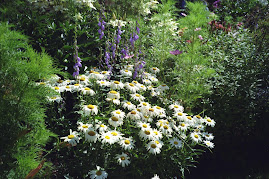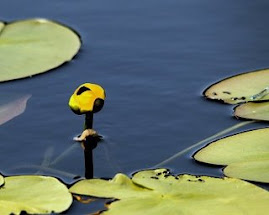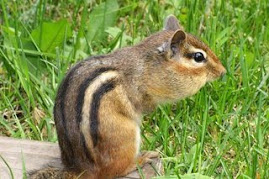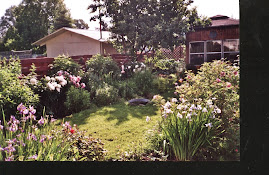Sunday, 30 January 2011
Tasks for a Cold Winter Day
What to do on a cold cold winter day? Clean the basement of course. I will not be starting my seeds down there until April, but nevertheless, the big tables have become cluttered. (What to do with all the damn books!) Nevertheless, I start the clearing process - put away the camping and fishing gear and books! and get ready to put up the shop lights.
On the computer, (Microsoft Word file) I make a list of seeds and seed starting information. Each type has its own protocol. Some germinate in the dark; others need light. Some need heat and some cool. In a home growing situation, one does the best one can. I use the information I have collected over the years and the information in the seed packet. I note here the seed packet info is often vague or just plain wrong. For instance I start most seeds inside even though the packet says "plant outside as soon as the soil is warm." I want my flowers fast, not in August. The only seeds I plant outside are nasturtiums. I tack the list to the wall of the back basement room and I put up the calender with the start dates marked.
What else to do on a cold winter day? Toss out the hyacinth and iris blooming from the bulbs I planted in October. Put the amaryllis in the cold room. Water the house plants and give each on a quarter turn. Read my book in the heated back porch and watch the finches, sparrows, chickadees and starlings, and big black squirrel attack the feeders.
Last fall, I set out newspapers on a patch of lawn beside a garden bed. I shovelled compost onto the papers and in this way, the turf is broken down and a new section of garden can be created. But what to put here? I am very partial to giant hosta. I have a huge hosta bullying its way under the Explorer Roses. The giants are not easy to find but this year, T&T advertises Empress Wu Giant Hosta. Mmm. On the other hand, hostas attract slugs and then they look raggedy unless I constantly strew coffee grounds all around them. Maybe another rose? Or a hydrangea?
Thursday, 27 January 2011
Seedy Saturday
February 26th
11:00a.m.-2:00 p.m.
Waverley Public Library - Auditorium
Entrance is free – Donations Appreciated
Seedy Saturday is a place to:
o See displays from local gardening groups
o Hear a presentation and see a film on “Savingyour Seed” – by Kate Green from USC
o Find heritage, open-pollinated and unusualseeds from local gardeners
o Share your seeds or begin your collection ofheritage seeds
If you have seeds to contribute to the seed exchange, besure to bring small packets of any seeds you have, labeled with information about the plant name, where and how itwas grown, where it originated from and other plant features.
For more information call Kim McGibbon at 625-8813
For more info go to: http://www.nwofood.ca/ http://www.nwofood/.
Sunday, 23 January 2011
The Sunflower Massacre
Sunflowers. I never had great luck with sunflowers until last summer. Previously, I'd planted them in my very dry front yard, but they did not grow well. It was surprising because when I lived in Kaminisitiquia, I always planted a row of sunflowers along the edge of the vegetable garden and they grew very well.
But last year, I bought Russian Giant, the biggest variety, started them inside and set out small plants in the back lane, a spot in full sun beside an 8 foot fence. They were magnificent. Many were twelve feet in height. When they started to lean into the lane, I tied them to the fence. The stalks were hollow but strong and woody, about an inch and a half in diameter. It was like tying up a tree. The plan was to leave them tied to the fence and let the birds feed from the seeds all winter.
I also planted zucchini seeds at the feet of the sunflowers. These grew out into the lane and produced more zucchini than expected -many more. I was begging people to take them away.
However, tragedy. In September, my neighbour chain sawed all the sunflowers down. He thought that was what I wanted. Luckily I got a few pictures. I'll try again this summer, same variety,Russian Giant, same fence.
But last year, I bought Russian Giant, the biggest variety, started them inside and set out small plants in the back lane, a spot in full sun beside an 8 foot fence. They were magnificent. Many were twelve feet in height. When they started to lean into the lane, I tied them to the fence. The stalks were hollow but strong and woody, about an inch and a half in diameter. It was like tying up a tree. The plan was to leave them tied to the fence and let the birds feed from the seeds all winter.
I also planted zucchini seeds at the feet of the sunflowers. These grew out into the lane and produced more zucchini than expected -many more. I was begging people to take them away.
However, tragedy. In September, my neighbour chain sawed all the sunflowers down. He thought that was what I wanted. Luckily I got a few pictures. I'll try again this summer, same variety,Russian Giant, same fence.
Resurection
I am revising my garden blog. Perhaps the arrival of the seeds gave me the motivation. I have always kept a garden diary on Microsoft Word, but this year, 2011, my blog will be my diary.
Some background: I have a small city garden which is crammed with perennials and bushes. I like the jungle look for two reasons - it attracts birds, it gives a feeling of privacy and isolation in a busy neighbourhood. Also it is easy upkeep.
I also grow most of my annuals under lights in the basement. So far, I have ordered my seeds from my favourite supplier, T&T seeds in Winnipeg, and they have arrived along with a litre of slug pellets and a spray bottle of Critter Ridder - more about these two organic products later.
Some background: I have a small city garden which is crammed with perennials and bushes. I like the jungle look for two reasons - it attracts birds, it gives a feeling of privacy and isolation in a busy neighbourhood. Also it is easy upkeep.
I also grow most of my annuals under lights in the basement. So far, I have ordered my seeds from my favourite supplier, T&T seeds in Winnipeg, and they have arrived along with a litre of slug pellets and a spray bottle of Critter Ridder - more about these two organic products later.
Sunday, 15 February 2009
Free Garden Catalogues
Here's a link to a bunch of free garden catalogues. Canadian all. http://www.highway7.com/t_nature/nat_0302_gardens.html
Saturday, 14 February 2009
Canada Blooms in March in Toronto
Celebrate Canada at our 13th Anniversary "Canada Blooms" March 18-22, 2009 at the Metro Toronto Convention Centre, South Building.
Click Here to Buy Your Tickets Today!
Canada Blooms: The Toronto Flower & Garden Festival invites you to visit a paradise bursting with six acres of glorious gardens in full bloom, more than 100,000 square feet of green thumb shopping and much, much more at Canada's largest and most prestigious flower and garden festival.
Interested in learning more about gardening? With four different stages going non-stop, the show offers over 200 hours of seminars, workshops and demonstrations in five days from some of the best garden experts in North America. And it's free with your admission to Canada Blooms.
Need a little inspiration or looking for ideas? Over twenty dazzling and unique display gardens designed and built by the best of the best around the theme "Canada Blooms", where we celebrate our tradition of gardening and horticultural excellence.
To learn more about Canada Blooms 2009, visit Canada Blooms.
Click Here to Buy Your Tickets Today!
Canada Blooms: The Toronto Flower & Garden Festival invites you to visit a paradise bursting with six acres of glorious gardens in full bloom, more than 100,000 square feet of green thumb shopping and much, much more at Canada's largest and most prestigious flower and garden festival.
Interested in learning more about gardening? With four different stages going non-stop, the show offers over 200 hours of seminars, workshops and demonstrations in five days from some of the best garden experts in North America. And it's free with your admission to Canada Blooms.
Need a little inspiration or looking for ideas? Over twenty dazzling and unique display gardens designed and built by the best of the best around the theme "Canada Blooms", where we celebrate our tradition of gardening and horticultural excellence.
To learn more about Canada Blooms 2009, visit Canada Blooms.
Nice Gift
My seeds arrived and with them a gift for sending my order in on line. A small envelope of Dry Seaweed Concentrate Fertilizer packs a big punch. Seaweed, of course, has been used for fertilizer by generations of Maritimers.
The dry stuff is extremely concentrated. One packet of 15 grams has the almost fairy tale ability to never run out. The packet is first mixed with a gallon of water. Then you use two teaspoons ! to a litre of water in make the mixture you use for the plants.
According to the blurb, this stuff works for houseplants as well as garden plants. Powerful? Not really at a 2-5-2 or 2% nitrogen, 5% phosphorus and 2% Potash. But a fine gift and thank you T&T seeds.
The dry stuff is extremely concentrated. One packet of 15 grams has the almost fairy tale ability to never run out. The packet is first mixed with a gallon of water. Then you use two teaspoons ! to a litre of water in make the mixture you use for the plants.
According to the blurb, this stuff works for houseplants as well as garden plants. Powerful? Not really at a 2-5-2 or 2% nitrogen, 5% phosphorus and 2% Potash. But a fine gift and thank you T&T seeds.
Friday, 6 February 2009
February Re-start
In January, it was too cold to think of gardens but now I am fired up and ready to go. I sent off my first order to T&T seeds. This was the flower order which I'll start in my basement under lights. (T&T Seeds at garden@ttseeds.com)
I am scaling back this year. I have to. The flower beds are so chock full of large perennials that there is little room for annuals. We have had such a good snow cover that I am confident my perennials are ready to burst as soon as it leaves. (Unless it floods. With so much snow, that is always a possibility).
But I did order some of the old favourites: pink lavatera, canary vine - the best annual climber, godetia, mixed colour impatiens for the shade garden, sweet peas for cutting and lemon gem marigolds to finish the season. I had such good luck growing geraniums from seed that I ordered several packs for the patio posts T&T does not carry the variety of cosmos that I like (sea shell) so I will look for it around town.
I will be going to some bird festivals in April. This means I have to give up some of the more "picky" plants such as schizanthus, pansies and wave petunias. I did order a few seeds that I will plant straight into the garden, namely bachelor buttons and nasturtiums. These last flow over the bricks that edge the patio. I plan to plant lots of sunflowers along the fence in the back lane as a treat for the birds.
Meanwhile the house is full of the scent of hyacinths. The stems are a little stretched and have to be propped on twigs. Hyacinth stems are hollow and boneless. They will practically lie down across the pot unless they are propped.
The King Alfred Daffodils came along nicely. They bloom for a few weeks, easily the longest blooming indoor bulb. They too stretched in our low northern light conditions but they do not seem to mind. Three pots of three plants each massed together on a side table make a grand winter show.
I am scaling back this year. I have to. The flower beds are so chock full of large perennials that there is little room for annuals. We have had such a good snow cover that I am confident my perennials are ready to burst as soon as it leaves. (Unless it floods. With so much snow, that is always a possibility).
But I did order some of the old favourites: pink lavatera, canary vine - the best annual climber, godetia, mixed colour impatiens for the shade garden, sweet peas for cutting and lemon gem marigolds to finish the season. I had such good luck growing geraniums from seed that I ordered several packs for the patio posts T&T does not carry the variety of cosmos that I like (sea shell) so I will look for it around town.
I will be going to some bird festivals in April. This means I have to give up some of the more "picky" plants such as schizanthus, pansies and wave petunias. I did order a few seeds that I will plant straight into the garden, namely bachelor buttons and nasturtiums. These last flow over the bricks that edge the patio. I plan to plant lots of sunflowers along the fence in the back lane as a treat for the birds.
Meanwhile the house is full of the scent of hyacinths. The stems are a little stretched and have to be propped on twigs. Hyacinth stems are hollow and boneless. They will practically lie down across the pot unless they are propped.
The King Alfred Daffodils came along nicely. They bloom for a few weeks, easily the longest blooming indoor bulb. They too stretched in our low northern light conditions but they do not seem to mind. Three pots of three plants each massed together on a side table make a grand winter show.
Sunday, 4 January 2009
Seeds again
Another free catalogue arrives. This one is from Lindenberg Seeds, 803 Princess AV, Brandon, Manitoba R7A 0P5. This catalogue is notable for its large selection of vegetables and flowers. Everything northern is here including the fine pie pumpkin "Sugar", the fast growing Sugar Baby Watermelon and other quick growers that we must have in Northwestern Ontario. On page 86, they give their picks for the best and hardiest varieties for the prairies and, as we all know, if it can grow in Manitoba, it can grow here. The list includes such stalwarts as Detroit Dark Red Beets, Nantes Carrots, and Homesteader Peas. They offer the entire list of 20 varieties on sale for $28.95 regular $32.32, a super deal. I'm buying the package.
Meanwhile the amaryllis are just starting. Christmas tree out to the recyclers and Amaryllis in flower to brighten the winter. I had no luck with my poinsettia this Christmas. It seemed peaky from the time I brought it home from the A&P. The leaves drooped and dropped off. I put it in the sun but it just curled up the more. It is sitting in the snow. If I could get out to the compost, I'd toss it in. One more snow fall and I may lose sight of the compost entirely.
Meanwhile the amaryllis are just starting. Christmas tree out to the recyclers and Amaryllis in flower to brighten the winter. I had no luck with my poinsettia this Christmas. It seemed peaky from the time I brought it home from the A&P. The leaves drooped and dropped off. I put it in the sun but it just curled up the more. It is sitting in the snow. If I could get out to the compost, I'd toss it in. One more snow fall and I may lose sight of the compost entirely.
Tuesday, 9 December 2008
Christmas Gifts
Canadian Gardening has an interesting gift list in the current issue. My fav is the following: "My dream gift for Christmas would be a young, strapping male with meaty thighs and a willingness to fulfil my every desire—but mostly to dig, dig, dig.""
Otherwise, consider the following.
1) A garden bandit or weed looper. Just a pole with a loop of metal on the end but oh, what a back saver and efficient weeder.
2) A kneeling stool which can also be turned over to use as a seat. This item is a knee saver and you will find plenty of other uses for it.
3) A pair of Felcro pruners, the best made.
4)A lovely indoor plant or selection of indoor herbs
5) A beautiful bird feeder.
Tip. If you are prone to achy lower back muscles , try this wonderful tip. When you feel the ache coming on, just stand and give yourself a good shake. Shake you fanny and your entire body. Magic.
Otherwise, consider the following.
1) A garden bandit or weed looper. Just a pole with a loop of metal on the end but oh, what a back saver and efficient weeder.
2) A kneeling stool which can also be turned over to use as a seat. This item is a knee saver and you will find plenty of other uses for it.
3) A pair of Felcro pruners, the best made.
4)A lovely indoor plant or selection of indoor herbs
5) A beautiful bird feeder.
Tip. If you are prone to achy lower back muscles , try this wonderful tip. When you feel the ache coming on, just stand and give yourself a good shake. Shake you fanny and your entire body. Magic.
Friday, 21 November 2008
Tand T Comes Through
Just when the garden is sinking into winter and looking a bit bleak, along comes the first seed catalogue. TandT, a reliable Manitoba grower, first off the mark.
I get several catalogues and I have ordered from many but in the last few years I found all the seeds I need in Stokes and T&T. Stokes is so detailed and gives such good growing information that it is a must for anyone starting seeds inside. T&T provides the Manitoba favourites and if it grows in Winnipeg, it can grow here.
Most seed catalogues start with new introductions. For instance this year T&T offers a frilly petunia, a white egg plant, a striped morning glory and so on. I pay little attention to this section. These plants are for those gardeners who are interested in novelty. Many of these newcomers are never seen in subsequent editions of the catalogue and one wonders just how successful they were for the average home grower.
I seldom order plants from catalogues. I prefer to use the local nurseries and see the plant before I buy.
So what do I look for? Every garden is in flux; every garden changes from year to year. Each year I see new ideas, seeds to try for new conditions. Next year I want more sweet peas, more sunflowers and shorter lilies for border. I'd like to try ferns in the increasing shade of the side garden. I want to switch to a different variety of squash. In the past I grew Swiss chard and I'd like to grow it again. I have increased the size of the front garden bed and have no idea what to put in it yet.
And above all, I love looking at the pictures and dreaming of another season.
Tip. The loop weeder is the greatest garden tool for saving your back. It is just a loop of metal at the end of a long pole. No more bending, kneeling and hand digging weeds. Just swipe into the soil, chomp the weed and leave it where it lies. It is much more efficient and easy than a hoe. A great gift for elderly gardners.
I get several catalogues and I have ordered from many but in the last few years I found all the seeds I need in Stokes and T&T. Stokes is so detailed and gives such good growing information that it is a must for anyone starting seeds inside. T&T provides the Manitoba favourites and if it grows in Winnipeg, it can grow here.
Most seed catalogues start with new introductions. For instance this year T&T offers a frilly petunia, a white egg plant, a striped morning glory and so on. I pay little attention to this section. These plants are for those gardeners who are interested in novelty. Many of these newcomers are never seen in subsequent editions of the catalogue and one wonders just how successful they were for the average home grower.
I seldom order plants from catalogues. I prefer to use the local nurseries and see the plant before I buy.
So what do I look for? Every garden is in flux; every garden changes from year to year. Each year I see new ideas, seeds to try for new conditions. Next year I want more sweet peas, more sunflowers and shorter lilies for border. I'd like to try ferns in the increasing shade of the side garden. I want to switch to a different variety of squash. In the past I grew Swiss chard and I'd like to grow it again. I have increased the size of the front garden bed and have no idea what to put in it yet.
And above all, I love looking at the pictures and dreaming of another season.
Tip. The loop weeder is the greatest garden tool for saving your back. It is just a loop of metal at the end of a long pole. No more bending, kneeling and hand digging weeds. Just swipe into the soil, chomp the weed and leave it where it lies. It is much more efficient and easy than a hoe. A great gift for elderly gardners.
Wednesday, 19 November 2008
Cue the snow, cue the storm, cue the howling winds
Now that our gardens are slipping under the snow, it is a good time to take stock of the past year.
I congratulate myself on reaching November without a garden injury this year -no bursitis, no bad back, no pulled muscles. In the past, I have not been so lucky.
This year I was determined to limit my garden tasks and only work at each for no more than twenty minutes. Easy to say but when you work in a garden, time changes its character. It falls away and loses all meaning. You are always in the present so time does not move along at a normal pace. And there is always is the temptation to do a little bit more.
But this year I bought a garden clock, an item I believe is a necessity to preserve the health of gardeners. I limited myself to twenty minutes per task and the clock, way up on the wall of the garden shed, monitored the minutes. I suppose a kitchen timer would work just as well.
Dr. Charles Bryan, a local chiropractor, who has seen a fair number of gardeners' aching backs and repetitive strain injurues, says the first rule of gardening is to put a limit on each task. Gardening is an athletic endevour he says and just as most of us cannot run for hours so we cannot garden for hours.
Garden clocks or exterior clocks showed up in garden centres two years ago. At first they were expensive but the price dropped this year. My clock is made of scrolly iron work and takes two A batteries. I think it is an attractive garden feature.
I congratulate myself on reaching November without a garden injury this year -no bursitis, no bad back, no pulled muscles. In the past, I have not been so lucky.
This year I was determined to limit my garden tasks and only work at each for no more than twenty minutes. Easy to say but when you work in a garden, time changes its character. It falls away and loses all meaning. You are always in the present so time does not move along at a normal pace. And there is always is the temptation to do a little bit more.
But this year I bought a garden clock, an item I believe is a necessity to preserve the health of gardeners. I limited myself to twenty minutes per task and the clock, way up on the wall of the garden shed, monitored the minutes. I suppose a kitchen timer would work just as well.
Dr. Charles Bryan, a local chiropractor, who has seen a fair number of gardeners' aching backs and repetitive strain injurues, says the first rule of gardening is to put a limit on each task. Gardening is an athletic endevour he says and just as most of us cannot run for hours so we cannot garden for hours.
Garden clocks or exterior clocks showed up in garden centres two years ago. At first they were expensive but the price dropped this year. My clock is made of scrolly iron work and takes two A batteries. I think it is an attractive garden feature.
Sunday, 16 November 2008
The snowless area
Snow to the east and snow to the west but nothing to speak of in Thunder Bay. Deep grey clouds sail over but no drama. A friend, a long time resident, says she can smell approching snow but she does not smell it yet. She says there is a hush, as if the trees were holding their breath, but she has not tuned into this either.
I make a trip out to Vanderweese to look at the wonderful Christmas displays. I am also hoping to find dwarf ameryllis but no luck. I note their bulbs run from 13$ up, at least five dollars more expensive for similar bulbs in the supermarket.
At home I put out water for the birds and every day I thaw ice in the big plastic plant saucer with a kettle of hot water. The birds are on the hunt for water these days as the usual supplu slowly freezes over. Several years ago I bought a bird bath heater but it did not work well in deep cold. I will use the kettle method until the big freeze sets in.
A downy woodpecker, which I have seen in this urban neighbourhood before, shows up for some suet cake. She is a female, as shown by the lack of the red spot on the back of the head. The downy is the most common woodpecker found in the city. This small upright black and white bird sometimes gives a high squeaking call.
A gang of starlings are eating the crab apples. Darn! I was hoping to attract cedar waxwings but no, the short tailed speckled guys with their long bills are stripping the fruit now that the frost has softened it.
On the patio, the juncos look like sparrows dressed in tuxedos. They are black with a white tummy and when they fly you can see their natty white outer tail feathers. Sometimes they give a funny little hop. They also make clicking noises, probably to keep in touch with each other.
I make a trip out to Vanderweese to look at the wonderful Christmas displays. I am also hoping to find dwarf ameryllis but no luck. I note their bulbs run from 13$ up, at least five dollars more expensive for similar bulbs in the supermarket.
At home I put out water for the birds and every day I thaw ice in the big plastic plant saucer with a kettle of hot water. The birds are on the hunt for water these days as the usual supplu slowly freezes over. Several years ago I bought a bird bath heater but it did not work well in deep cold. I will use the kettle method until the big freeze sets in.
A downy woodpecker, which I have seen in this urban neighbourhood before, shows up for some suet cake. She is a female, as shown by the lack of the red spot on the back of the head. The downy is the most common woodpecker found in the city. This small upright black and white bird sometimes gives a high squeaking call.
A gang of starlings are eating the crab apples. Darn! I was hoping to attract cedar waxwings but no, the short tailed speckled guys with their long bills are stripping the fruit now that the frost has softened it.
On the patio, the juncos look like sparrows dressed in tuxedos. They are black with a white tummy and when they fly you can see their natty white outer tail feathers. Sometimes they give a funny little hop. They also make clicking noises, probably to keep in touch with each other.
Sunday, 9 November 2008
snow, lovely snow
A light snow is sifting down. The juncos leave birdy tracks on the patio where they are feasting on black oil sunflower seeds. The resident chickadee pecks at the bird cake in its holder. The grey squirrel arrives to steal what it can.
The garden is settling into winter. The gardener is still washing pots inside. She had a pleasant gift this week, ten big plastic bags full of leaves. She drags them to the compost and empties several over the remaining pile and turns out one bag over the daphne bush, a tender plant still holding on to its variegated leaves.
But in the back garden all leaves are fallen. Only a few berries remain on the high bush cranberry and nothing on the mountain ash. The lamium, alive yesterday, is frozen today. In front, the mullein still blooms in the sharp wind and blowing snow. It must be the world's toughest plant. It has been blooming since August.
I should have brought the hose in earlier, thinks the gardener, struggling with a frozen 100 feet of ice.
Now is the time to plant the indoor bulbs. The amarylis have arrived at Vanderweese and other stores. Nothing is more cheery in the winter than this marvelous indoor flower. Every child in Thunder Bay should have an amarylis to plant and watch it stretch into bloom.
The garden is settling into winter. The gardener is still washing pots inside. She had a pleasant gift this week, ten big plastic bags full of leaves. She drags them to the compost and empties several over the remaining pile and turns out one bag over the daphne bush, a tender plant still holding on to its variegated leaves.
But in the back garden all leaves are fallen. Only a few berries remain on the high bush cranberry and nothing on the mountain ash. The lamium, alive yesterday, is frozen today. In front, the mullein still blooms in the sharp wind and blowing snow. It must be the world's toughest plant. It has been blooming since August.
I should have brought the hose in earlier, thinks the gardener, struggling with a frozen 100 feet of ice.
Now is the time to plant the indoor bulbs. The amarylis have arrived at Vanderweese and other stores. Nothing is more cheery in the winter than this marvelous indoor flower. Every child in Thunder Bay should have an amarylis to plant and watch it stretch into bloom.
Monday, 3 November 2008
High Park Toronto
Some years ago, the decision was made to change Toronto's High Park from a typical urban manicured space into an ecological wilderness. What a delight it is. From downtown you take the Queen Street East street car to Park Drive. You can walk the trails around Grenedier Pond and up to the restaurant where you can get a nice hot chocolate. Native trees and plants attract plenty of birds: ducks, trumpeter swams, cormorants, Canada geese on the ponds and gold finches, sparrows and late warblers in the trees. There is also a small zoo hidden in there somewhere. Thunder Bay has few oak trees but here there are many. In October they are a deep copper colour, beautiful alongside the bright red maples.
Even in late October Toronto gardens are interesting. A few roses bloom on. Many small downtown front yards have eschewed lawn for rock/plant/shrub compositions. I saw plenty of lamium and lots of spreading allysum.
Even in late October Toronto gardens are interesting. A few roses bloom on. Many small downtown front yards have eschewed lawn for rock/plant/shrub compositions. I saw plenty of lamium and lots of spreading allysum.
Subscribe to:
Posts (Atom)

